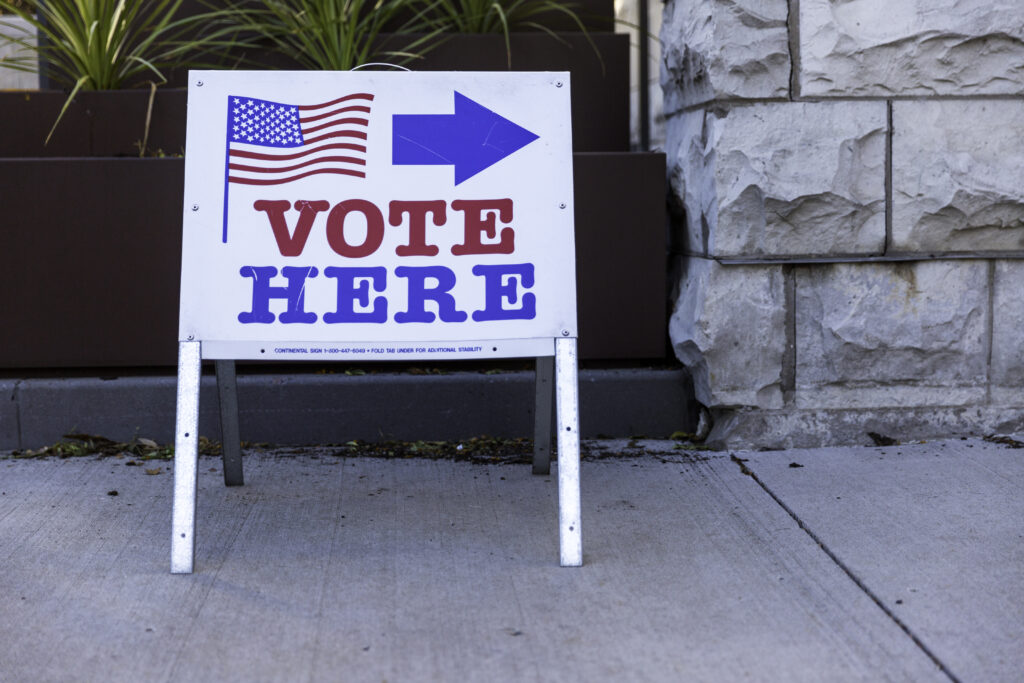Critics of the Electoral College say they simply want to elect the president the way we elect most other officials.
Every state governor is chosen by a statewide popular vote. Why not a national popular vote for president?
Delegates to the Constitutional Convention in 1787 asked themselves the same question, and they rejected a national popular vote along with several other possible modes of presidential election.
The plan they adopted is found in Article II, Section 1: “Each State shall appoint, in such Manner as the Legislature thereof may direct, a Number of Electors, equal to the whole Number of Senators and Representatives to which the State may be entitled in the Congress.”
So, what are the beneficial effects of choosing our presidents through the Electoral College?
Limits Contested Votes
Under the Electoral College system, presidential elections are decentralized, taking place in the states. Although some see this as a flaw, this decentralization has proven to be of great value.
For one thing, state boundaries serve a function analogous to watertight compartments on an ocean liner. Disputes over mistakes or fraud are contained within individual states. Illinois can recount its votes, for instance, without triggering a nationwide recount. This was an important factor in America’s messiest presidential election—which was not in 2000 but in 1876.
That year marked the first time a presidential candidate won the electoral vote while losing the popular vote. It was a time of organized suppression of black voters in the South, and there were fierce disputes over vote totals in Florida, Louisiana, and South Carolina. Each of those states sent Congress two sets of electoral vote totals, one favoring Rutherford Hayes (R) and the other for Samuel Tilden (D).
Just two days before Inauguration Day, Congress finished counting the votes—which included determining which votes to count—and declared Hayes the winner. At the very least, the Electoral College contained these disputes within individual states so that Congress could endeavor to sort it out. It can be argued the Electoral College prevented a fraudulent result.
Amplifies Results, Boosts Legitimacy
Four years later, the 1880 presidential election demonstrated another benefit of the Electoral College system: It can amplify the results of a presidential election.
The popular vote margin that year was less than 10,000 votes—about one-tenth of one percent—yet James Garfield (R) won a resounding electoral victory, with 214 electoral votes to Winfield Hancock’s (D) 155. There was no question who won, let alone any need for a recount.
More recently, in 1992, the Electoral College boosted the legitimacy of Bill Clinton (D), who won with only 43 percent of the popular vote but received over 68 percent of the electoral vote.
Discourages Regional Candidacies
There is no doubt that the greatest benefit of the Electoral College is the powerful incentive it creates against regionalism.
In 1888, incumbent President Grover Cleveland (D) lost reelection despite receiving a popular vote plurality. He won this plurality because he won by very large margins in the overwhelmingly Democratic South. He won in six southern states by margins greater than 30 percent, whereas only tiny Vermont delivered a victory percentage of that size for Benjamin Harrison (R).
In other words, the Electoral College ensures that winning supermajorities in one region of the country is not sufficient to win the White House. After the Civil War, and especially after Reconstruction, that meant the Democratic Party had to appeal to interests outside the South to earn a majority in the Electoral College.
Indeed, when Grover Cleveland ran again for president four years later in 1892, although he won by a smaller percentage of the popular vote, he won a resounding Electoral College majority by picking up California, Illinois, Indiana, New York, and Wisconsin, in addition to the South.
Encourages Coalition-Building
Today, the Electoral College continues to push parties and presidential candidates to build broad coalitions. Critics say swing states get too much attention, leaving voters in so-called safe states feeling left out. But the legitimacy of a political party rests on all those safe states—on places that the party has already won over, allowing it to reach farther out.
In 2000, for instance, George W. Bush needed every state that he won—not just Florida—to become president. Of course, the Electoral College does put a premium on the states in which the parties are most evenly divided. But would it really be better if the path to the presidency primarily meant driving up the vote total in the deepest-red or -blue states?
Similar electoral systems prevail around the world. In parliamentary systems such as in Canada, Israel, and the United Kingdom, prime ministers are elected by the legislature. This happens in Germany and India as well, which also have presidents who are elected by something like an electoral college. In none of these democratic systems is the national popular vote decisive.
Safeguards Our Rights
The measure of our Constitution is whether it is effective at encouraging just, stable, and free government—government that protects the rights of its citizens. The Electoral College is effective at doing this. We need to preserve it, and we need to help our fellow Americans understand why it matters.
Trent England ([email protected]) is executive vice president of the Oklahoma Council of Public Affairs. Adapted and reprinted by permission from Imprimis, a publication of Hillsdale College.
Internet Info
Trent England, “The Danger of the Attacks on the Electoral College,” Imprimis, Hillsdale College, June 2019: https://imprimis.hillsdale.edu/danger-attacks-electoral-college/




